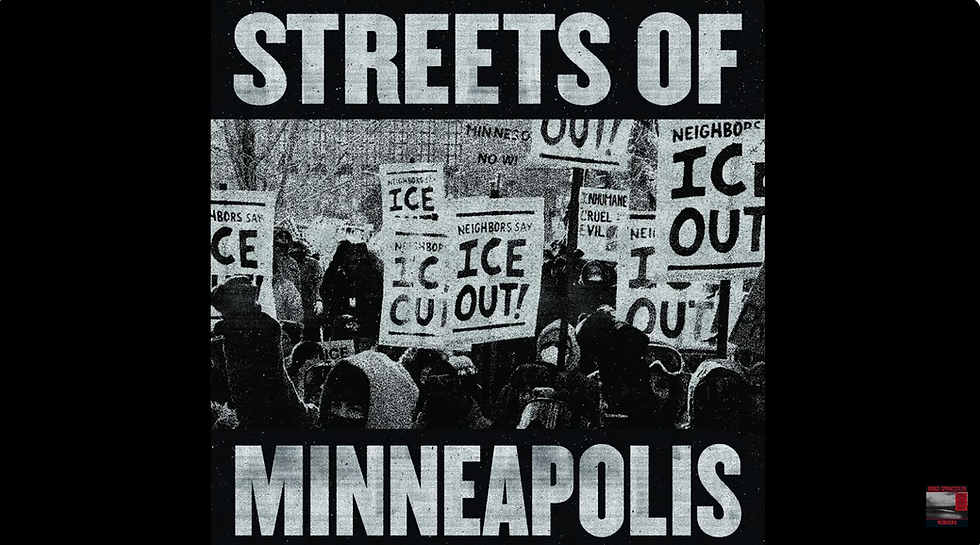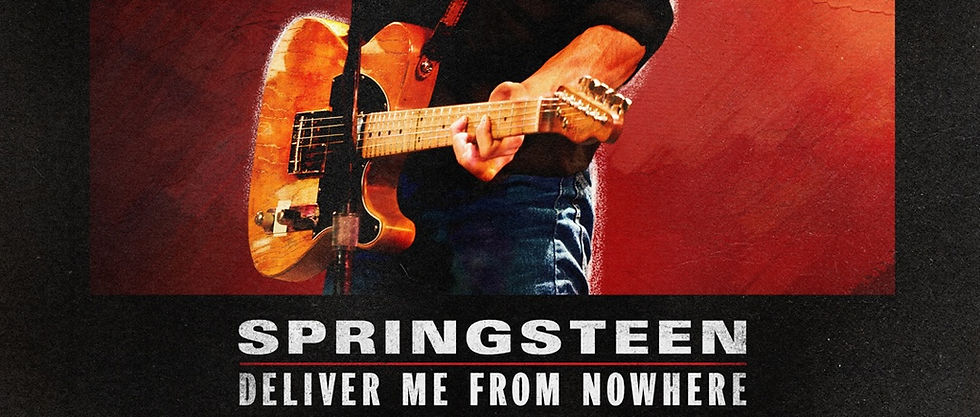'Greetings' at 50: Bruce Springsteen's first album was better than it had any right to be
- Pete Chianca

- Jan 5, 2023
- 5 min read

If "Greetings from Asbury Park, NJ" is 50 years old, how old does that make us? No matter — we're all better off thanks to the launch of Bruce Springsteen's recording career, which would blossom into a storied, almost miraculous journey full of music that would touch our emotions, stir our souls, and give us a prism through which to view our own lives.
And so, to mark the occasion, here are some thoughts on what that fateful first album brought to the table, excerpted from the revised edition of "Glory Days: Springsteen's Greatest Albums."
It’s no exaggeration to say that today, Bruce Springsteen’s first two albums are beloved by his fans, and contain some of the tracks diehards most covet hearing live. But it’s also no exaggeration to say that when they first came out, well, they whiffed.
No, they didn’t disappear immediately into the ether. After all, they were both major label releases, with legendary producer John Hammond having signed Springsteen to Columbia after Springsteen’s manager, Mike Appell, famously muscled their way into an audition in Hammond’s office on May 2, 1972. But “Greetings” topped off at No. 60 on the album charts, with “E Street Shuffle” doing only one better, stalling at No. 59.
We know now what happened next: Springsteen’s third time was the charm, with 1975’s “Born to Run” cementing his place in the rock pantheon, launching a spectacular run throughout the remainder of the ’70s and ’80s and establishing a career that continues to flourish to this day. And with the depth of the successes that followed them, it seems almost silly to consider his earliest efforts as contenders to be considered as Springsteen’s greatest. And yet …
It’s impossible to discount the scraggly genius that was evident right out of the gate. The inimitable Lester Bangs, in his Rolling Stone review of “Greetings,” was particularly impressed (in his Bangs-ish way) with the lyrics and the way Springsteen delivered them: “Some of ’em can mean something socially or otherwise, but there’s plenty of ’em that don’t even pretend to, reveling in the joy of utter crass showoff talent run amuck and totally out of control,” he wrote.
Granted, “Greetings” is not dud-free -- it has exactly two, the first being “Mary Queen of Arkansas,” with its spare, slow warble giving you plenty of time to realize the lyrics are going nowhere. Still, it has some effective turns of phrase: “You're not man enough for me to hate or woman enough for kissing” is nothing if not evocative, and when Springsteen intones, “I don't understand how you can hold me so tight and love me so damn loose,” it’s with a sudden charge that makes the narrator feel like a real person instead of a preening poet. The album’s second low point is of course “The Angel,” which is equally overripe but doesn’t have the benefit of being even remotely relatable -- to this day I have no idea what it’s supposed to be about.
Still, connecting on seven out of nine, as Springsteen does on the rest of “Greetings,” is pretty darn good for your first time out. Right off the bat, “Blinded by the Light” establishes a sort of loopy flair grounded in striking imagery that will populate the rest of the record. Springsteen may like to mention how he used a rhyming dictionary to write “Blinded,” but the scenarios he describes are far more than just word salad, with mentions of crashing calliopes and indifferent Scotland Yard detectives evoking a sort of revved-up “Desolation Row.” But also worth noting is the chorus’s stellar hook, which is surely what fueled Manfred Mann’s No. 1 1976 cover version (one unfortunate mispronunciation notwithstanding).
It’s a strategy that continues on “Does This Bus Stop at 82nd Street?,” a strummy nugget of New York City whimsy whose wizard imps and sweatsock pimps are reminiscent of “Blinded”’s off-kilter residents. Here, too, Springsteen surfaces from beneath the rollicking wordplay to finally deliver something more resonant: “Man, the dope’s that there’s still hope.” And on “For You,” Springsteen’s poetry is even more ingenious -- even if the “you” of the title is ultimately inscrutable, the longing and helplessness she inspires in the narrator is anything but obtuse. The song’s last verse before the final chorus -- lamenting that “that medal you wore on your chest always got in the way” before finally asking plaintively “Who am I to ask you to lick my sores?” -- is an explosive jumble of nostalgia, pain and frustration familiar to anyone with a long-lost lover.
“Greetings” actually goes darker and harder in several spots, notably on “Lost in the Flood,” notable for David Sancious’s eerie, insistent keyboard work and a dark, vivid tone which hints at future epics like “Jungleland,” even as it raises the specter of Vietnam in a way that Bruce would tease out further in future work. And the frenetic album closer “Hard To Be A Saint In The City” is like a funhouse-mirror version of “Does This Bus Stop at 82nd Street?,” depicting a more sinister New York where even the “steam in the street” is respite from the city’s claustrophobic underground.
Most worthy of note, though, are probably the album’s two singles, neither of which charted but both which I’d argue portend Springsteen’s future greatness, even as they stand wonderfully alone in his canon. On “Growin’ Up,” there’s a sense of humor and playfulness that would largely disappear from Bruce’s work until “The River,” while at the same time establishing Springsteen’s view of childhood as a battlefield you have to fight your way out of (ideally with a guitar as your weapon of choice).
And “Spirit in the Night,” written last for the album in search of something radio-friendly, brings together elements that would fuel Springsteen’s work for years to come: colorful characters, vivid descriptions, Clarence Clemons’ honking sax, a melange of tempos and a catchy call-and-response chorus that leaves you scratching your head as to why it wasn’t a breakthrough hit. (It was, however, his first song that Springsteen himself caught coming over the radio airwaves, a momentous occasion in its own right.)
Just a few years later, Springsteen would release “Born to Run,” and everything would change. But it’s worth not forgetting that his first album didn’t just portend greatness -- it was great all on its own. Even if nobody realized it at the time.
TRIBUTES TO "GREETINGS" ON ITS 50TH:
Asbury Park Press: 'Greetings from Asbury Park,' Bruce Springsteen's debut album, was released 50 years ago
Wall Street Journal: Bruce Springsteen’s ‘Greetings From Asbury Park, N.J.’ Turns 50









Comments